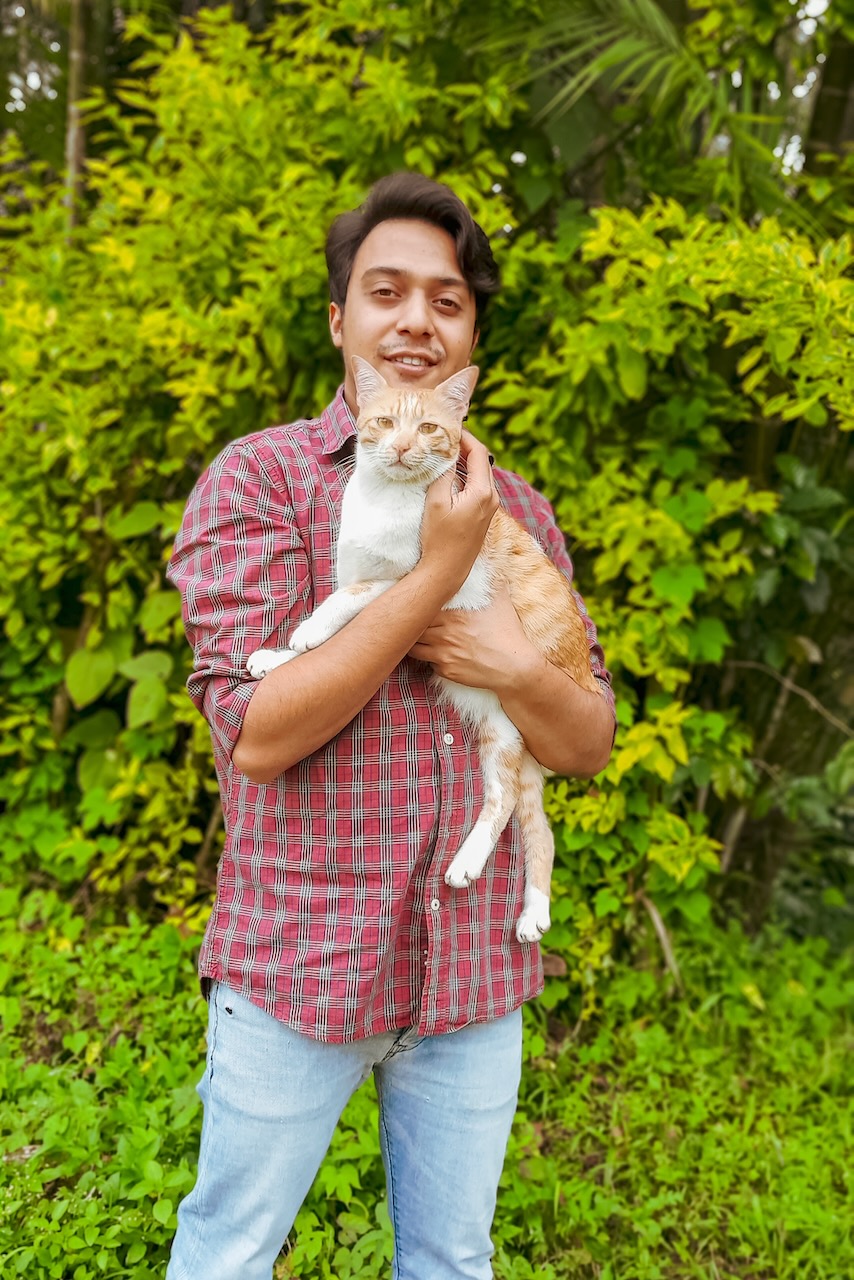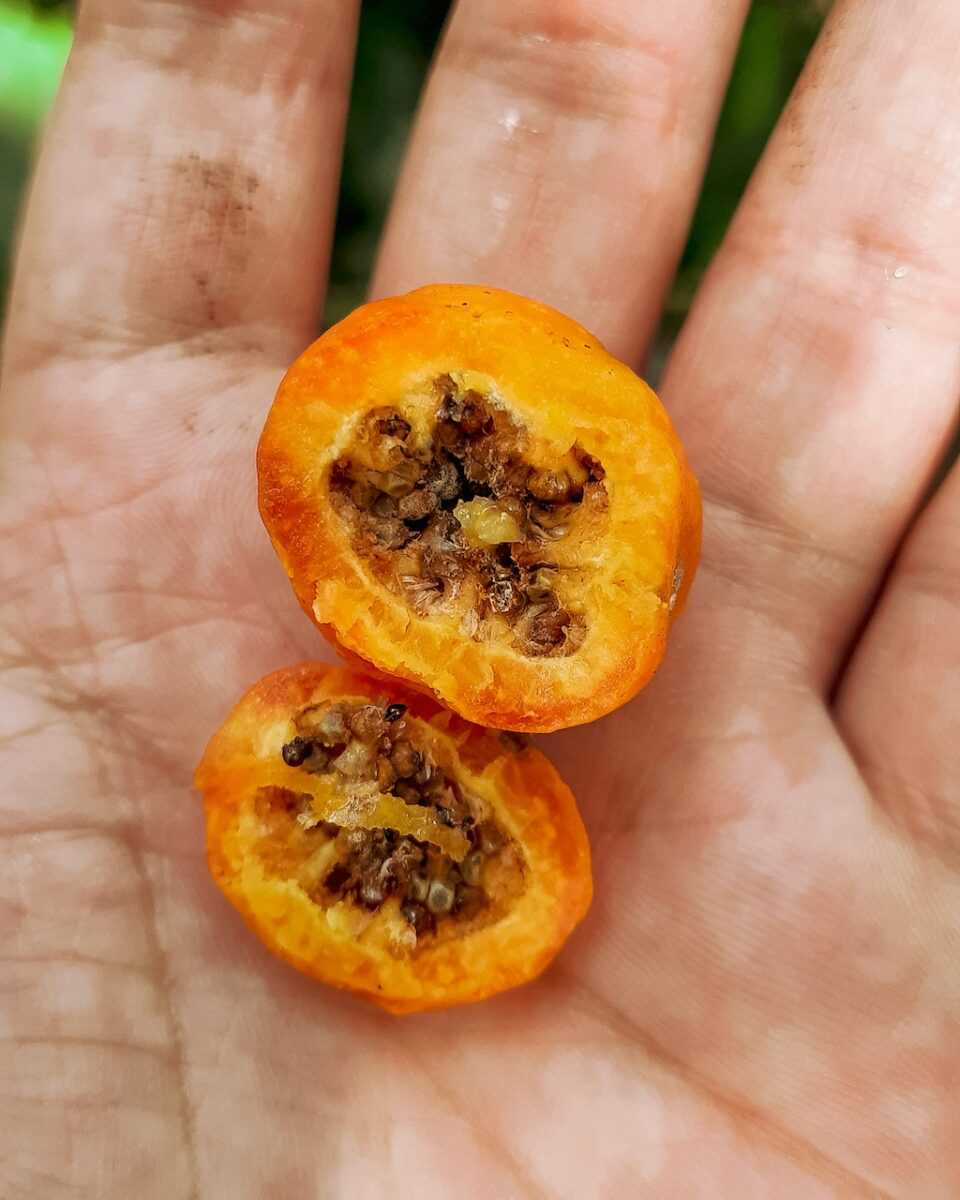
Seeking Perfect Harmony with Nature

Something more important than cost
Under the banner of Caffeine Nirvana, Danish Ali runs a coffee farm named Zoya Estate in Keserke, a village in Chikmagalur, southwestern India. For generations, coffee production has been a family business for the Alis, dating back over 250 years.
5B and chandragiri, both native to India, are the two main varieties currently grown at the approximately 36 hectare farm. These varieties were developed by the Coffee Board of India, a government body striving to support coffee farming in the country.
“5b has a sugar content of 26 to 27%,” Danish says, “which is the highest of all Indian-native varieties. But it only grows in certain environmental conditions, such as our region, which is cloudy for eight months of the year and has a high rainfall.”

With an average 10 to 30 people on the regular payroll throughout the year, Zoya Estate also employs 50 to 80 seasonal pickers during a harvesting season. In addition, the company hires 30 to 50 skilled workers a day for pruning, which Danish sees as the most crucial step in the entire production cycle and takes 30 to 45 days.
“The main expenditure for us is weeding. We remove the weeds by hand. They grow fast because it rains a lot here. So it’s a huge cost for us. But we never use any harmful weedicides or chemical fertilizer to reduce the cost because that’s the principle that’s been passed down generations of my family.”
Given the current situation of India’s coffee industry, “Any person who is in their right mind or has a business perspective wouldn’t choose my line of business,” Danish laughs. “Every now and then, it does cross my mind to sell off this estate and invest my money elsewhere to achieve financial stability. But this is a job carried on by my family and ancestors. I’m fighting a battle every day to keep this business sustainable.”


Coffee industry has future
One thing that’s most distinctive about Caffeine Nirvana is its comprehensive engagement in the entire chain, from coffee farming to processing to roasting to retail.
It was Danish’s grandfather who laid the foundation of this approach. After large companies contacted him in the 1960’s, he shifted his focus from commodity coffee to specialty coffee and started exporting his crops mainly to Europe. His coffee grew to be a hit among his clients as he followed standard operating procedures requested by the large corporations and continued to improve the quality of his coffee.
“My grandfather used to visit the Coffee Board and bring back new varieties and introduce the latest farming methods he learned there. I remember seeing him working hard in the fields. But that business model was only possible because curators and exporters bought his coffee for a premium. Now, we can’t expect the same purchasing power from them. Then again, we can’t sell to the local market, either. That’s why we need to market our coffee by building direct relationships with roasters.
Also, we need to satisfy various preferences of consumers and roasters in this day and age. Growing specialty coffee has many uncertainties. When something goes wrong somewhere along the production, it could ruin a whole batch.”

After completing his master’s degree in the metropolis of Bengaluru, Danish returned home to take over his family business in 2020. Amid nationwide Covid-induced lockdowns, he asked himself what he wanted to do, and decided to add more value to coffee by exporting it himself.
“To be honest, my family wants me to do something else,” Danish says, “because it’s hard to make a profit growing coffee. Also, because of climate change, everyone is scared of what the future might hold 10 to 15 years down the line. But I saw a huge potential for the future of the coffee industry after discovering the diverse flavors of specialty coffee.
In reality, money is the motivator for many of the coffee producers in our region. But on the other hand, there are farmers who love specialty coffee and try to make a living out of it. I think doing business with passionate people is the only way forward.”

In 2020, Zoya Estate won The Ernesto Illy International Coffee Award as one of the best coffee farms in India. The result was a big moral booster for Caffeine Nirvana.
“Nowadays, thanks to the internet, we get to meet people from overseas who are passionate about coffee. My main motto is to sell the best quality coffee available in India. It is my passion about specialty coffee that fuels the pursuit of perfection and drives me forward.”


Sustainability etched into DNA
“I want to create a sustainable business model and help our farms become financially independent,” Danish says. “If we can make more profit, we’ll be able to pay a premium to our workforce and enhance their standards of living. If we make enough profit to invest in workers, equipment and our future, that will create a positive cycle. Going forward, we’d like to export other farms’ coffee as well.”
Danish’s philosophy is partly influenced by India’s past under British rule. India became an independent state in August 1947, regaining sovereignty for the first time in around 200 years since the East India Company established its presence in the early years of the 17th century. As the country sought to build its economy, its efforts were centered on eradicating poverty and becoming economically independent.
“Workers experienced oppression when India was a British colony. Making profit is important. But at the same time, we have to consider humanitarian factors, too. I wish peace and tranquility for everyone.”

It’s not just human well-being that Danish deeply cares about. Zoya Estate uses no harmful chemicals because he strives toward what he describes as perfect harmony with nature. This philosophy wasn’t necessarily put into words. But it’s a principle that generations of the Ali family have lived by. This stance is evident at Zoya Estate, where one can see a variety of trees everywhere on the farm. These trees, Danish says, are also the driving force behind his company’s success.
“We use native fruit trees like Atti, Basri and Goni as shade for coffee. Those fruits don’t taste good. So they are not for humans. But these trees form the backbone of our estate because they attract diverse animals, and the fruit droppings become good organic fertilizer for the coffee, which contributes to the soil health and superb cupping scores. Nature has cradled us in her bosom, nourished us and allowed us, along with all organisms, to thrive abundantly.
Nature has taught us that we need to know nature and live harmoniously with it to be self-sustainable. It is because of this philosophy that we don’t use artificial substances like plastics or anything that could harm the lives of animals living on the farm.”

The phrase “sustainable development goals” has taken firm root in today’s business lexicon. It was first introduced at the United Nations summit in September 2015. But that notion is deeply etched into the DNA of Zoya Estate throughout hundreds of years of its operations.
“Being in nature calms my mind and enriches my spiritual life. I love the peace and tranquility here. Even if I was told I could live anywhere in the world, I would definitely choose this place.
The beauty of working in specialty coffee is that you get to live in nature with all your needs met and enjoy a degree of luxury. I can’t speak for everyone, but definitely for me, this job is a spiritual thing.”
Humankind is just one of all living things on Earth, co-existing with the planet’s flora and fauna. It is a simple fact, yet often taken for granted in this day and age. The principle passed down generations of the Ali family is a precious beacon of light that guides us back to where we should be.









